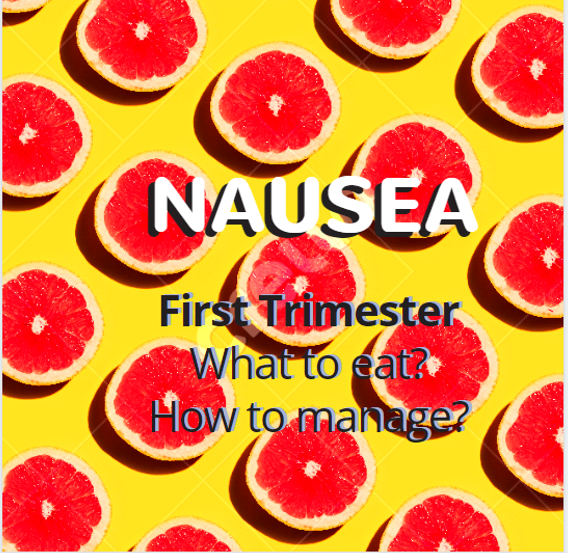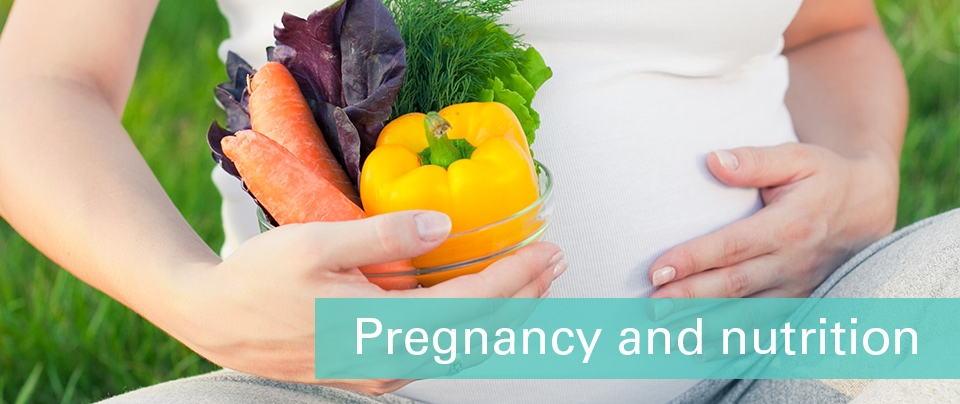If you are experiencing the joy of pregnancy then you must take note that this experience is going to be different for every woman. However, morning sickness and/or nausea bothers most expecting women during the first trimester of pregnancy. Nausea is usually the first and the earliest symptom of pregnancy and occurs in nearly 50% of pregnant women. 
Is Nausea a sign of a healthy pregnancy?
Generally, Nausea and Vomiting during early pregnancy are considered to be good signs and are associated with lower risk of miscarriage.
Is feeling sick during pregnancy normal?
Every pregnancy is unique and different. Some have strong cravings for sweet, salty or sour food while some experience nausea, also known as morning sickness.
Nausea mostly occurs during the 1st trimester and often subsides from the start of 2nd trimester. Most women will not experience excessive vomiting but many will have discomfort due to nausea and it’s no fun to feel like to puke for months.
What causes nausea during early pregnancy?

A woman’s body undergoes many changes during the entire pregnancy term, some of these will manifest in the form of Nausea during the first trimester of pregnancy. The most common causes for Nausea include:
- Nausea and vomiting are associated with the elevated levels of pregnancy hormones which supports the newly fertilized egg.
- A woman is more sensitive to smell during pregnancy and this could increase the feeling of nausea.
- Stress or fatigue is also known to cause a physical reaction within the body, leading to nausea and vomiting.
Related Reading : Breast Changes during Pregnancy [Video]

How do I stop feeling sick during pregnancy?
What helps nausea when pregnant? Unfortunately, there is no pill for this condition. But the solution lies in simple lifestyle and dietary changes. Every mother should try the following remedies and keep this “nausea kit” handy when queasiness strikes.
1. Go by “slow and steady rule” when eating
Increased level of hormones during pregnancy can make oesophagus and stomach sphincter to relax which causes acid reflux resulting in nausea. Instead of having three large meals, eat small frequent meals. But, do not overeat.
Related Reading: Bodily Changes You Can Expect During Pregnancy
2. Ginger
Ginger is the age-old remedy to treat pregnancy induced nausea and is absolutely safe to consume by the pregnant woman. Ginger can be taken in the tea or bake some cookies out of ginger and keep them handy whenever you are feeling queasy.
3. Peppermint
Sniffing or chewing few leaves of fresh mint can help fix nausea. It even works as a mouth freshener after vomiting.
4. Hydration
If you are vomiting, it’s important to stay hydrated and keep sipping liquids in order to replenish lost electrolytes. If you are not able to drink enough water due to increased nausea, turn your fruits into ice cubes like watermelon or lemon slush. Try to drink water only between meals.
During nausea, opt for cold, water-rich food like melons, grapes, cucumbers and smoothies. Smoothies help to neutralize stomach pH providing relief from nausea.
5. Go bland or something sour
Keep some bland crackers in your bedside drawer and eat a couple even before getting out of the bed. Right before bed eat a snack like muesli with milk or yoghurt with fruits.
Try sucking on sour candy or just sniffing something sour or sipping lime water can also help ease queasiness.
6. Vitamin B6 supplements
During pregnancy water-soluble vitamins especially Vit B6 deplete more quickly, so loading up on food sources that contain Vitamin B 6 like egg yolk, yoghurt and whole grains may help to fix nausea.
What helps nausea when pregnant?
If food options are not working, consider other natural remedies that help to ease nausea during pregnancy. Dietary and lifestyle changes could be accompanied with some alternative approaches that will provide relief in most of the cases.
1. Master Breathing Techniques
Left nostril breathing calms the nervous system. Gently block the right nostril and breathe through the left nostril for inhalation and exhalation for few minutes. Related Reading: Breathing Exercise during Pregnancy
2. Staying physically active
A gentle 20 min walk in a day can do wonders for your body by releasing endorphins which reduces stress and anxiety. It is otherwise not advisable to start any new physical activities or exercises during first trimester of pregnancy. You may consider consulting a prenatal expert at FabMoms for more advice.
3. Reduce stress

Tiredness and stress aggravate nausea as stress increases acid in the stomach- that is why it gets worse later in the day. Prenatal yoga, meditation, listening to music, aroma bath or a warm bath can be helpful to reduce stress. Prenatal yoga help reduces pregnancy-related nausea by reducing stress.
4. Acupressure
This may be a safe and effective remedy. Applying three finger pressure firmly on the base of the palm, just about where you find your pulse. Breath deeply and increase the pressure. Press that area for a minute or so.
5. Discover the triggers and avoid them
Eat what makes you feel better, not worse. Avoid anything too spicy, fried, sugary, sweet stuff or leftover foods that can disturb your stomach. Switch to unscented soaps, shower gels and other strong smell which can increase the sensation of
6. Get plenty of fresh air
Make sure to get plenty of fresh air during pregnancy which reduces nausea and has numerous benefits for mother and baby. Avoid smoke and smoking, which can trigger nausea and increase the risk of birth defects.
Relieving morning sickness is always a trial and error. Remember, each pregnancy is unique and so are the babies. In the severe case, medication is the second choice for doctors. Ensure you consult your doctor before taking any medicines.
We hope you find these tips helpful to make your pregnancy a beautiful memory for a lifetime. You may consult a Prenatal dietitician at FabMoms. FabMoms offers a personalised meal plan for pregnant as well as lactating women. Contact 9920991286 to find out more.
Related Reading: Nutrition during Pregnancy: Do’s and Don’ts
This article is contributed by Dietician Vijeta Goyal.